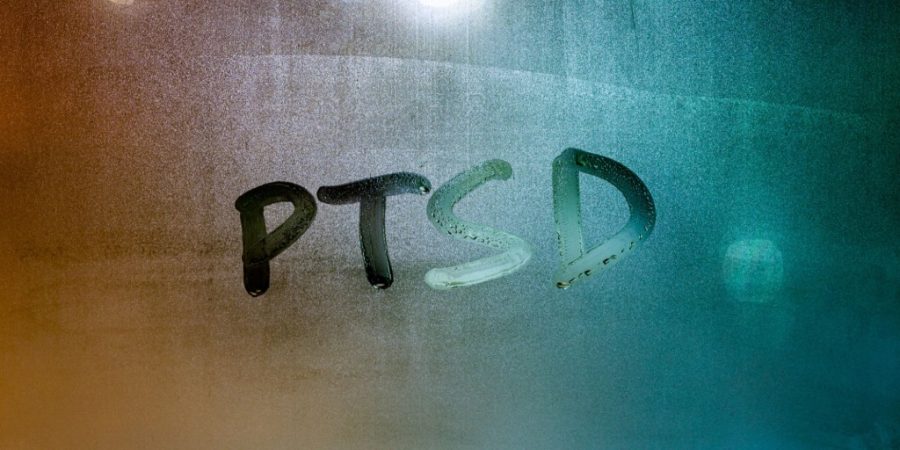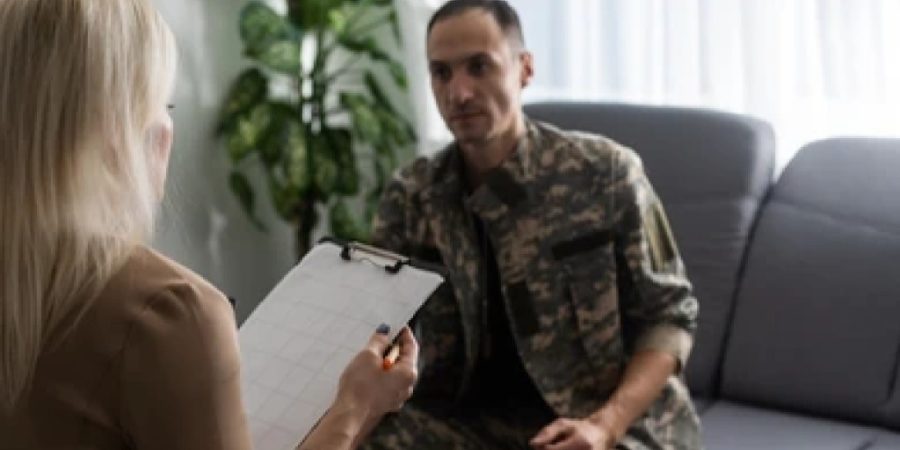
Post-traumatic stress disorder (PTSD) can have a serious impact on a veteran’s life. For the many veterans who struggle with this disorder each and every day, treatment options are available and they can help. But can PTSD be cured?
Let’s first find out more about veterans and PTSD. Why do veterans get PTSD? What are the symptoms? And if PTSD can be cured, how is it done? All of this and more explored below.
Table of Contents
The Connection Between PTSD and Veterans


According to the United States Department of Veterans Affairs, approximately 11 to 30 percent of veterans are diagnosed with PTSD each year. The exact numbers depend on the time and war served, but these statistics show just how prevalent this mental health condition is in veterans. So, why is this the case? Are veterans the only people who get PTSD? And can PTSD be cured?
Well, traumatic events can happen to anybody—service member or civilian alike. However, veterans are more likely than someone in the general population to be exposed to these traumatizing things. This is the nature of the job. Veterans often encounter:
- Service injuries
- Combat exposure
- Military sexual trauma
- Grief and loss
All of these factors will increase the chances of a veteran developing PTSD, especially when the right supports aren’t in place. Not having the resources to address the trauma, heal from the wounds, and practice necessary skills to smoothly transition back into civilian life only make it harder on veterans who are dealing with PTSD. This is why many veterans end up wondering if PTSD can be cured—they simply want relief from the symptoms.
Symptoms of PTSD
The symptoms of PTSD can look different in every person depending on their experiences. Most commonly, PTSD manifests in the form of:
- Avoiding triggers such as loud noises, crowds, or unfamiliar places
- Reliving traumatic memories, sometimes in the form of nightmares
- Feeling anxious or on edge
- Using drugs or alcohol to cope with emotional and/or physical discomfort
- Co-occurring mental health concerns, such as depression
If you are a veteran who has PTSD or suspects that you have this disorder because of the symptoms listed above, you might feel as though you are stuck in the past. You might find yourself asking, “Can PTSD be cured?” Without even realizing, you could be calling out for help. But what help is out there for people with PTSD? Let’s look now into treatment options—and if they can lead to a cure.
Can PTSD Be Cured with Treatment?


To cut right to the chase with the answer to the question, “Can PTSD be cured?”: no, PTSD can’t actually be cured. For a disorder to be cured, it means that it no longer exists—that the symptoms, signs, and even scars that came with it have completely disappeared. Unfortunately, these elements of PTSD don’t just go away.
This is because PTSD is tied to the past. The traumatic events that occurred have left a mark in your history. The harsh reality is that the past can’t change, and it can’t vanish into thin air.
For this reason, PTSD cannot be cured. This fact can seem discouraging to veterans who are living with PTSD and all its side effects. However, even though PTSD doesn’t go away, the symptoms can be treated to become more manageable.
Research shows that a variety of treatment options, when combined with the right medication management, can greatly increase the chances of a veteran finding recovery from the constant symptoms of PTSD. Furthermore, those who struggle with PTSD and co-occurring disorders like substance abuse find more success getting treatment at facilities that know how to work with veterans. This is because the veteran experience is unique. Therefore, the treatment for PTSD in veterans should also be specific for what they need.
Treatment for PTSD
Now that we’ve answered the question “can PTSD be cured?”, it’s time to look at potential treatments for PTSD.
In recent years, there has been rapid and successful development of new treatments for PTSD. Most typically, veterans will work with a mental health professional to assess which treatments would be most beneficial. Depending on these evaluations, the mental health professional could recommend:
- Cognitive behavioral therapy (CBT)
- Eye movement desensitization and reprocessing (EMDR) therapy
- Traumatic incident reduction (TIR) therapy
- Art therapy
- Group therapy
- Equine therapy
All of these treatment options help veterans to address the traumas that they’ve experienced without reliving the events. Therapy happens in a safe environment with a mental health professional facilitating. Veterans are encouraged to express themselves through a variety of methods, such as sharing, creating art, and physically moving, in order to activate the healing process. These techniques can assist veterans in pulling themselves out of the past and rooting themselves in the here and now.
Additional services to supplement the skills that veterans will learn through these therapies is also essential. Things like physical fitness and nutrition education give veterans the tools they need to feel better all around. Overall, these services can help veterans to feel more confident walking through life with post-traumatic stress disorder.
What’s most important for veterans is that they receive trauma-informed care. This is a treatment plan that is trauma focused, meaning that it recognizes the side effects of trauma on a person and responds to the symptoms of trauma without re-traumatization. Much of this involves creating a safe space for veterans to face the past head on. This is where residential treatment can be particularly useful.
In this type of setting, veterans have the time and the environment needed to focus on recovery. Moreover, the facility will be entirely drug- and alcohol-free. This is ensured during the detox process. For veterans who are in need of substance abuse recovery, having the opportunity to recover in such a supportive atmosphere can make all the difference in long-term success.
Of course, this isn’t always the best option for veterans who have PTSD. Thus, partial hospitalization programming or intensive outpatient care are alternatives that can offer a bit more flexibility for patients who are already a few stops in on the long road toward recovery.
Treatment Programs for Veterans at Heroes’ Mile
At Heroes’ Mile, we recognize both the strength and the vulnerability that comes with serving. As a facility that is made for veterans by other vets, we understand first hand how difficult it can be to reach out for help. In addition to wondering if PTSD can be cured, you are probably curious as to what your treatment options are.
We understand that it can disheartening to hear a negative answer to “Can PTSD be cured?” But while PTSD isn’t curable, it’s entirely treatable, and you have a path forward toward recovery.
For more information on how we can help, give us a call at 888-838-6692. You can also reach out confidentially through our online contact form. We’re here to take any and all inquiries as you begin to move forward through the pain of the past and into a happier, healthier future.
The post Can PTSD Be Cured? Veterans Want to Know appeared first on Heroes’ Mile Veterans Recovery Center.
Source
Original Author: Heroes’ Mile

